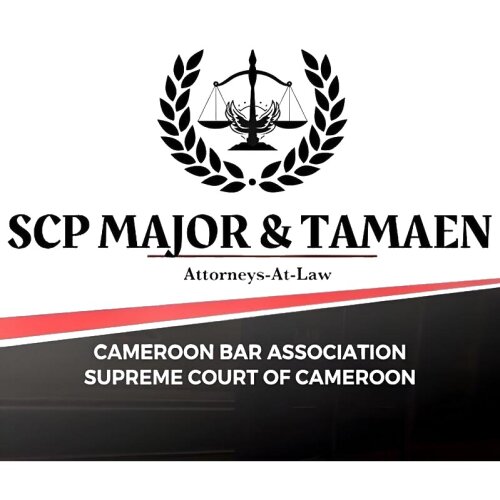Best Energy, Environment & ESG Lawyers in Cameroon
Share your needs with us, get contacted by law firms.
Free. Takes 2 min.
Or refine your search by selecting a city:
List of the best lawyers in Cameroon
Legal guides written by CHI & Partners Law Firm:
- Ship Registration in Cameroon
About Energy, Environment & ESG Law in Cameroon
Energy, Environment, and Environmental, Social, and Governance (ESG) law in Cameroon is a rapidly evolving field. Cameroon’s diverse ecosystems, rich natural resources, and commitment to sustainable development create unique legal challenges and opportunities. Energy law generally deals with petroleum, gas, electricity, and renewable resources, while environmental law covers areas such as conservation, natural resource management, pollution control, and climate change. ESG focuses on standards for how companies operate regarding the environment, social responsibility, and governance practices. In Cameroon, these areas are governed by a mix of national legislation, international agreements, and evolving regulatory frameworks aiming to ensure responsible resource use and sustainable development.
Why You May Need a Lawyer
Engaging with energy, environment, and ESG matters in Cameroon can be complex due to strict regulations, bureaucratic processes, and frequent changes in the law. Here are some common situations where legal help is advisable:
- Starting or investing in an energy or mining project
- Securing environmental permits and meeting compliance requirements
- Challenging or defending against environmental sanctions or closure orders
- Environmental impact assessments and reviews
- Community rights and land acquisition for projects
- Contract negotiations in the energy or natural resources sectors
- Company ESG compliance and corporate reporting obligations
- Advocacy for environmental protection or against pollution
- Managing disputes relating to environmental or energy projects, including arbitration and litigation
- Responding to changes in government policy or regulatory standards
Local Laws Overview
Cameroon has enacted various laws and regulations governing energy, environmental protection, and ESG standards:
- Energy Law: Mainly regulated by the 2011 Electricity Law, Petroleum Code, and Hydrocarbon Code. These laws set out rules for exploration, production, distribution, and sale of energy resources. Renewable energy promotion is also increasingly prioritized.
- Environmental Protection: The foundational law is Law No. 96/12 of August 1996 relating to Environmental Management. This law requires environmental impact assessments for significant projects, regulates pollution and hazardous waste, and establishes obligations for conservation.
- ESG Disclosure & Corporate Responsibility: While Cameroon’s ESG legal landscape is still developing, companies listed on the Douala Stock Exchange and foreign investors must comply with certain disclosure requirements and international standards linked to environment, social responsibility, and governance.
- International Agreements: Cameroon is a party to treaties such as the Paris Agreement, United Nations Framework Convention on Climate Change (UNFCCC), and the Convention on Biological Diversity, which shape national regulation and standards.
- Enforcement: The Ministry of Environment, Nature Protection and Sustainable Development (MINEPDED) and the Ministry of Water and Energy (MINEE) are the primary regulatory bodies. They are responsible for permits, enforcement, and oversight.
Frequently Asked Questions
What is an Environmental Impact Assessment (EIA) in Cameroon?
An Environmental Impact Assessment is a mandatory study required before undertaking any project with potential effects on the environment. It is regulated under Law No. 96/12 and must be approved by the Ministry of Environment.
Which activities require an environmental permit?
Any activity that could significantly alter the environment, such as mining, oil and gas operations, large-scale agriculture, or infrastructure projects, generally requires an environmental permit.
What are the main energy resources regulated in Cameroon?
Cameroon regulates oil, natural gas, electricity, and increasingly, renewable energy resources like hydropower, solar, and wind energy.
How does Cameroon address corporate social responsibility?
Through legal obligations in certain sectors and by aligning with international standards, especially for companies in natural resources. Disclosure of social and environmental practices is progressively being enforced, especially for larger or listed companies.
What penalties exist for environmental violations?
Penalties can include fines, suspension or closure orders, clean-up mandates, and in severe cases, criminal prosecution.
Who enforces energy and environmental laws in Cameroon?
The Ministry of Water and Energy handles energy sector rules, while the Ministry of Environment oversees environmental protection and related compliance.
Can local communities participate in decision-making on energy projects?
Yes, Cameroonian law and international standards encourage community consultation and participation, particularly during the EIA process or land acquisition negotiations.
What are typical ESG requirements for companies?
Companies are expected to follow rules on pollution prevention, fair labor, local community engagement, anti-corruption, and transparent corporate governance. Compliance depends on sector and company size.
Are there incentives for renewable energy investment?
Yes, the government offers certain tax and customs incentives for investments in renewable energy as part of national energy transition goals.
How do international treaties affect energy and environmental laws in Cameroon?
International commitments require Cameroon to align its laws with global standards on climate, biodiversity, and human rights, influencing both regulation and enforcement priorities.
Additional Resources
If you need further information or guidance, the following resources and organizations can be helpful:
- Ministry of Environment, Nature Protection, and Sustainable Development (MINEPDED)
- Ministry of Water and Energy (MINEE)
- National Agency for Standards and Quality (ANOR)
- Douala Stock Exchange for ESG-related corporate requirements
- National Environmental Management Plan documentation
- Environmental Protection NGOs such as WWF Cameroon and the Cameroon Environmental Watch
- Local bar associations offering referral to specialized lawyers
- Cameroon Chamber of Commerce for business-related energy and sustainability guidance
Next Steps
If you need legal assistance in Energy, Environment, or ESG in Cameroon, start by identifying your specific needs. Organize all relevant documents relating to your project or issue. Research local law firms or individual lawyers with expertise in these fields. Contact the relevant ministry or regulatory body for initial guidance. Schedule a consultation with a qualified legal professional to discuss your situation and options. Remember, early legal advice can help prevent costly mistakes and ensure ongoing compliance with Cameroon’s complex regulatory environment.
Lawzana helps you find the best lawyers and law firms in Cameroon through a curated and pre-screened list of qualified legal professionals. Our platform offers rankings and detailed profiles of attorneys and law firms, allowing you to compare based on practice areas, including Energy, Environment & ESG, experience, and client feedback.
Each profile includes a description of the firm's areas of practice, client reviews, team members and partners, year of establishment, spoken languages, office locations, contact information, social media presence, and any published articles or resources. Most firms on our platform speak English and are experienced in both local and international legal matters.
Get a quote from top-rated law firms in Cameroon — quickly, securely, and without unnecessary hassle.
Disclaimer:
The information provided on this page is for general informational purposes only and does not constitute legal advice. While we strive to ensure the accuracy and relevance of the content, legal information may change over time, and interpretations of the law can vary. You should always consult with a qualified legal professional for advice specific to your situation.
We disclaim all liability for actions taken or not taken based on the content of this page. If you believe any information is incorrect or outdated, please contact us, and we will review and update it where appropriate.
Browse energy, environment & esg law firms by service in Cameroon
Cameroon Attorneys in related practice areas.
Browse energy, environment & esg law firms by city in Cameroon
Refine your search by selecting a city.

















